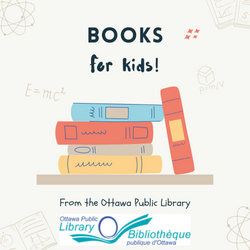Welcome to the Centre for Child Language Research!
/We're very happy to welcome our new blog sponsor, The Centre for Child Language Research. As a health researcher by day, I can't stress how important it is to participate in research when we get the opportunity. And plus, who doesn't enjoy a fun, free activity for the kids?
By Stephanie, Lab Coordinator
Are you looking for a fun new activity to do with your kids? Come visit the Centre for Child Language Research! The CCLR is a language development lab on the University of Ottawa campus that studies how your child learns language. We run studies for children from 2 years old all the way up to 8 years!
Our lab space is a welcoming environment for children with lots of books and toys for them to play with. A typical visit lasts just under an hour, with the actual studies being between five and fifteen minutes. Parents are also able to park for free while they are here! Our experiments are designed to be fun and engaging for children. In fact, research in our lab has found that using elements from video games helps children to perform tasks more easily. To find out more about a typical visit, check out this first-hand account from when Kids in the Capital visited one of our partner labs on campus.
Experiments that are fun and interactive!
A lot of the research we do is focused on discovering how children learn the sounds and words of their language, and how children become so amazing at language within the first years of their lives. One of the ways we ask these questions is by looking at how language experience influences the speed and accuracy of children’s ability to name pictures. For example, are 3-year-olds faster to name a picture of a book (a word that starts with ‘b’, which is learned at a very young age) compared to a picture of a shoe (a word that starts with ‘sh’ which is usually learned later). We also look at how children to learn brand new words. For example, when a child hears a new word, is it beneficial for them to repeat it out loud? This is similar to learning a new language in the classroom when a teacher pronounces the new words and the students repeat them. Our results show that sometimes it helps to repeat the words, but in cases when children are learning something very difficult, repetition might not always help!
We also look at how children perceive the language they hear. When we speak, the individual sounds of a word are not easily separated like you see in writing. Instead, they all start to blend together and change depending on the sounds around them. For example, say the word ‘key’ out loud, focusing on where your tongue hits the top of your mouth during the ‘c’. Compare that with the ‘c’ in ‘Coke’. The slight differences in the place where your tongue touches the roof of your mouth lead to differences in the acoustic signal that you hear. Adults can pick up on these miniscule differences and use them to identify a word without waiting to hear the whole thing. We are now discovering whether children can do this too.
The research at the CCLR is integral to our understanding of language development. This leads to better practices in education and in treating children with language disorders or delays. Parents can happily bring their children to our lab knowing that this research benefits society.
Junior Scientist!
Children who help us out with our research get a Junior Scientist Award and a t-shirt or small gift to take home! Participating with us is a fun, educational, and free activity that can be scheduled all year round. If you are interested, please sign up using our online form! You can also check us out on Facebook!






